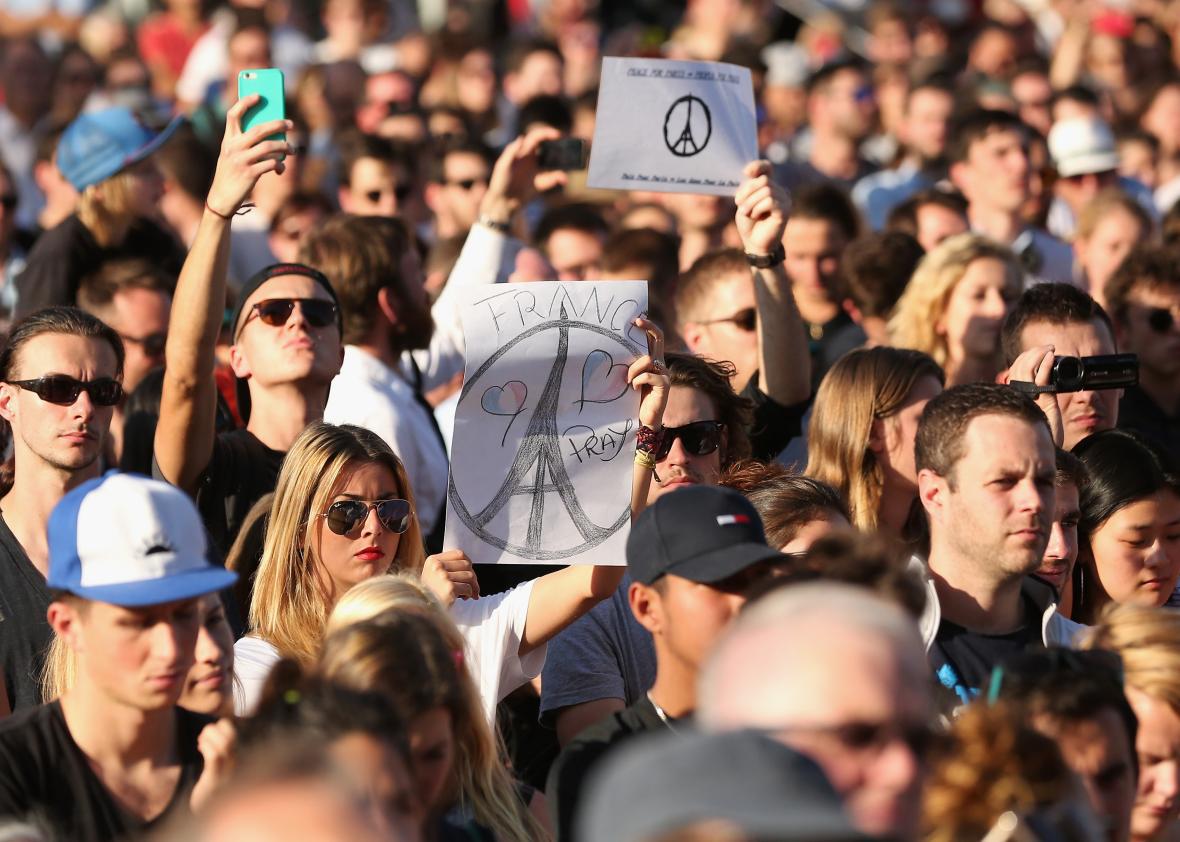As officials investigate Friday’s attacks in Paris and extract lessons about new terrorism prevention techniques, a theme is emerging: Encryption is bad for anti-terrorism efforts. We already know that law enforcement officials oppose strong encryption because it makes intelligence-gathering more difficult, and the Paris attacks are renewing calls for reexamination of digital privacy measures.
In an interview with ABC News on Sunday, New York City Police Commissioner William Bratton said that “ISIS, taking advantage of the technology … the ability to go dark, I think you’re going to see that’s going to play a significant factor in this event.” He added that the law enforcement community is waiting to get more information about what devices and software the attackers were using. “[I’m] very interested to see what types of phones they were equipped with, what types of apps they had on those phones. Were they, in fact, even in communication with each other at all?” he said.
On Sunday, Michael Morell, a former deputy director of the CIA, told CBS’s Face the Nation what he thinks investigators are going to discover. “We don’t know for sure yet, but I think what we’re going to learn is that these guys are communicating via these encrypted apps. The commercial encryption which is very difficult if not impossible for governments to break,” he said.
Politico points out that at its WhatWorks event on Tuesday (before the Paris attacks), Belgium’s interior minister, Jan Jambon, noted that terrorists are known to communicate through platforms that are hard for law enforcement officials to infiltrate. “The most difficult communication between these terrorists is via PlayStation 4. It’s very, very difficult for our services—not only Belgian services but international services—to decrypt the communication that is done via PlayStation 4.”
Sony said in a statement to CNBC that “PlayStation 4 allows for communication amongst friends and fellow gamers, in common with all modern connected devices. We take our responsibilities to protect our users extremely seriously, and we urge our users and partners to report activities that may be offensive, suspicious or illegal.”
Morell called for additional discourse about encryption and privacy on Face the Nation. “We need to have a public debate about this. We have, in a sense, had a public debate. That debate was defined by Edward Snowden and the concern about privacy. I think we’re now going to have another debate about that. It’s going to be defined by what happened in Paris.”
CIA Director John Brennan also called for renewed debate and reconsideration of government surveillance programs on Monday. Privacy advocates were quick to respond, though. American Civil Liberties Union deputy legal director Jameel Jaffer told the New York Times that, “When we’ve invested new powers in the government in response to events like the Paris attacks, they have often been abused.”
